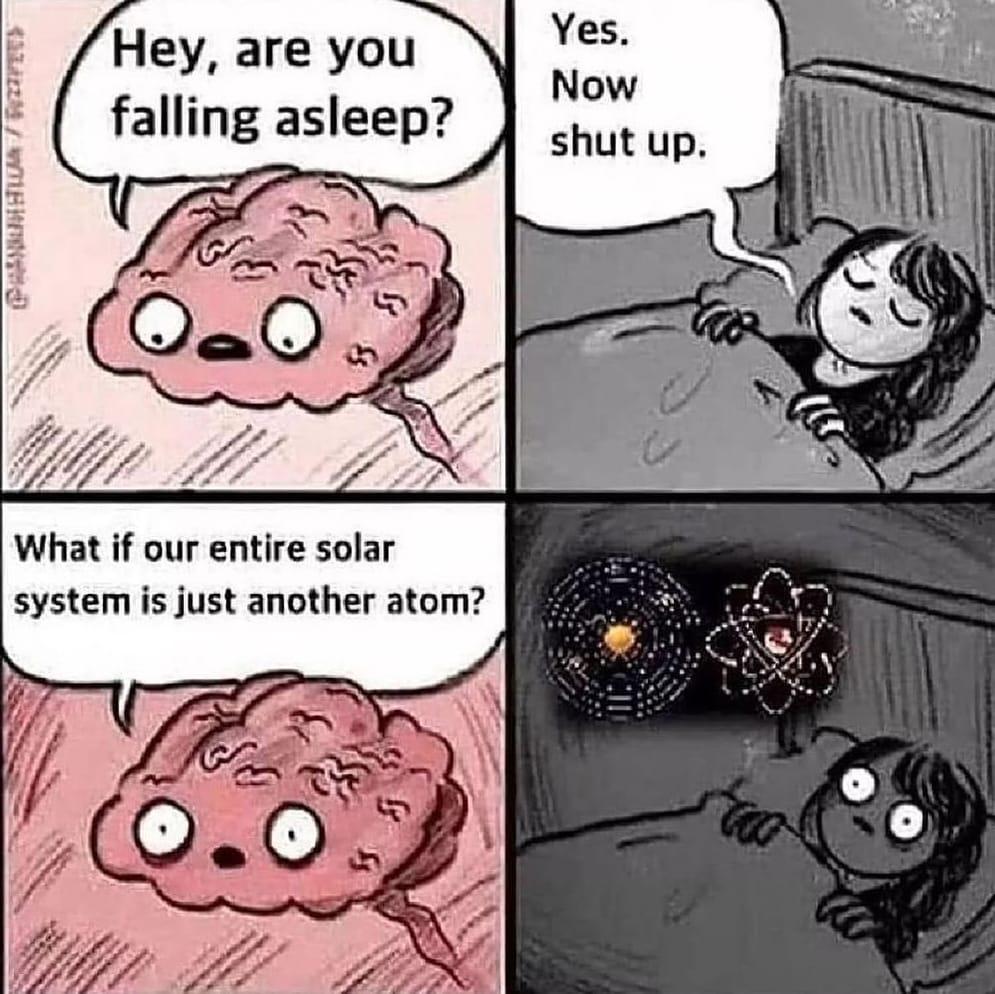this post was submitted on 03 May 2024
466 points (90.7% liked)
Science Memes
10988 readers
2041 users here now
Welcome to c/science_memes @ Mander.xyz!
A place for majestic STEMLORD peacocking, as well as memes about the realities of working in a lab.

Rules
- Don't throw mud. Behave like an intellectual and remember the human.
- Keep it rooted (on topic).
- No spam.
- Infographics welcome, get schooled.
This is a science community. We use the Dawkins definition of meme.
Research Committee
Other Mander Communities
Science and Research
Biology and Life Sciences
- [email protected]
- [email protected]
- [email protected]
- [email protected]
- [email protected]
- [email protected]
- [email protected]
- [email protected]
- [email protected]
- [email protected]
- [email protected]
- [email protected]
- [email protected]
- [email protected]
- [email protected]
- [email protected]
- [email protected]
- [email protected]
- [email protected]
- [email protected]
- [email protected]
- [email protected]
- [email protected]
- [email protected]
- !reptiles and [email protected]
Physical Sciences
- [email protected]
- [email protected]
- [email protected]
- [email protected]
- [email protected]
- [email protected]
- [email protected]
- [email protected]
- [email protected]
Humanities and Social Sciences
Practical and Applied Sciences
- !exercise-and [email protected]
- [email protected]
- !self [email protected]
- [email protected]
- [email protected]
- [email protected]
Memes
Miscellaneous
founded 2 years ago
MODERATORS
you are viewing a single comment's thread
view the rest of the comments
view the rest of the comments

If they don't orbit with any kind of movement then what does that say about Heisenberg's uncertainty principle?
We know their mass. So once observed we would know everything about them.
Unless your saying they just some how jump from one random point in that probability cloud to another?
i'm not sure why you think the uncertainty principle is a "gotcha", it specifically states that you can't know both the position and momentum of a particle and thus explicitly contradicts your claim that we'd know everything about them because we know their mass.
I can't be arsed to write out a whole scientific paper here so i'll just link to the probability cloud model of orbitals and hope you can make sense of that.
You specifically said "electrons do not orbit with any kind of movement"
So by your own argument they're not moving. We know the mass. So if we find one by your logic we know everything about it.
Yes that is the probability cloud model well done.
However my point again. You seem to think saying this renders the simile of planetary orbit obsolete. It doesn't it's a simile. It's a way of explaining something that doesn't have to exactly explain it.
If someone said "that fell on my head like a ton of bricks" would you go and examine the object and check it was exactly a ton of bricks or that it exactly exhibited the properties of a ton of bricks?
Or perhaps would you understand something from that about what had happened to them.
You may find this useful. https://en.m.wikipedia.org/wiki/Simile